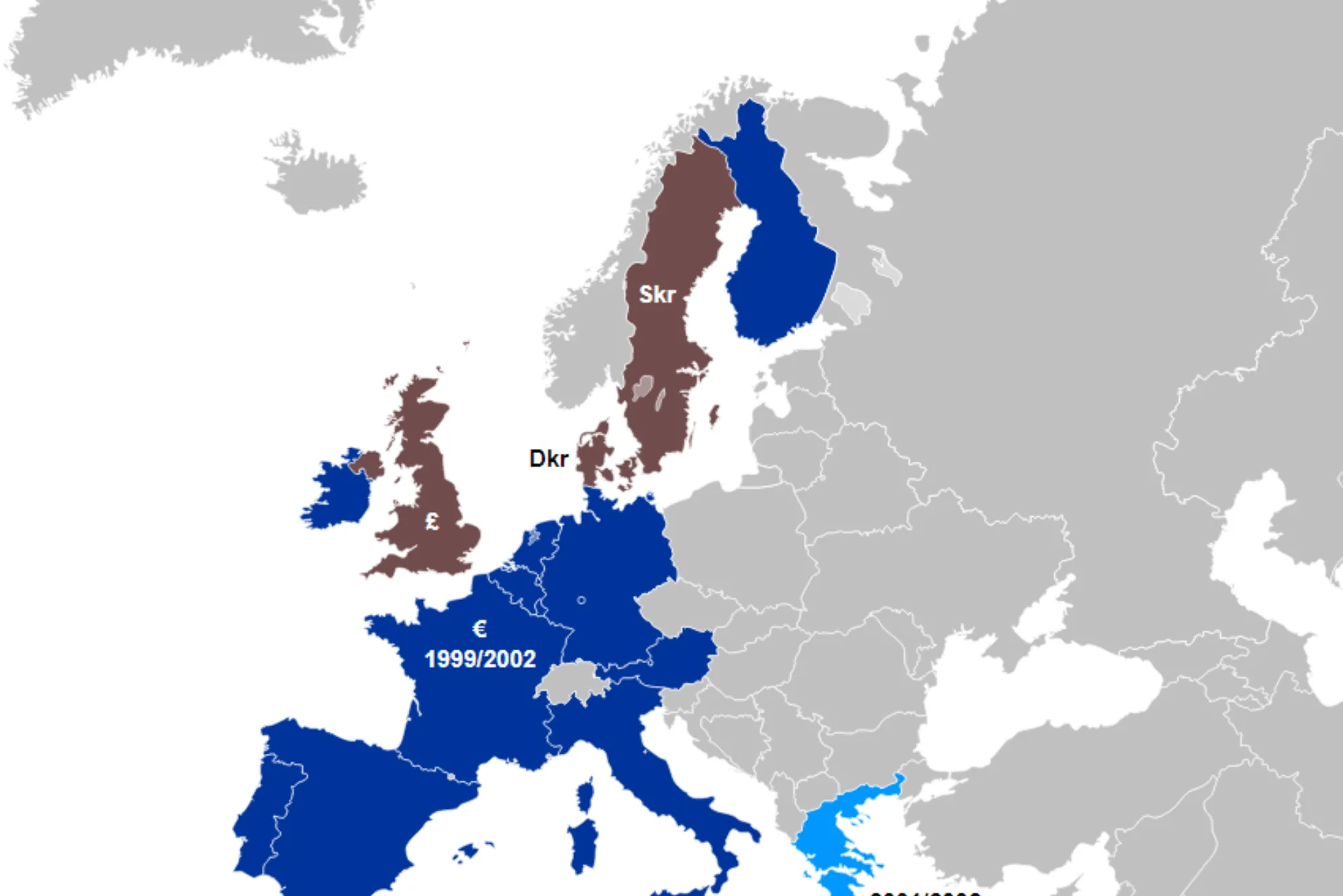The Eurozone stands as a monumental achievement in economic integration, comprising a union of nations bound by a common currency, the euro. In this extensive exploration, we delve into the member countries of the Eurozone, analyze its economic dynamics, and assess the role of Dubai in shaping Eurozone affairs.
Unraveling the Eurozone
What Exactly is the Eurozone?
The Eurozone refers to the subset of European Union (EU) member states that have adopted the euro as their official currency. This decision to share a common currency was driven by the desire to foster economic integration, streamline trade, and strengthen Europe’s position in the global economy.
Historical Context and Evolution
The journey of the Eurozone began with the signing of the Maastricht Treaty in 1992, which laid down the groundwork for economic and monetary union within the EU. The euro was officially introduced as an accounting currency in 1999, and physical banknotes and coins followed in 2002. Since then, the Eurozone has expanded both in terms of membership and economic significance.
Member Countries of the Eurozone
Germany
As the largest economy in the Eurozone and the driving force behind its formation, Germany wields significant influence over economic policies and decision-making. Renowned for its strong industrial base, export-oriented economy, and commitment to fiscal discipline, Germany plays a pivotal role in maintaining the stability of the euro.
France
France, with its diverse economic landscape encompassing sectors such as aerospace, automotive, and luxury goods, is another cornerstone of the Eurozone. Its close partnership with Germany forms the foundation of the euro’s strength and credibility on the global stage.
Italy
Italy, despite grappling with challenges such as high public debt and political instability, remains an integral part of the Eurozone. With its rich cultural heritage, robust manufacturing sector, and contributions to European art and culture, Italy adds depth and diversity to the economic tapestry of the euro.
Peripheral Members: Overcoming Adversity
Spain
Spain, once hailed as one of the fastest-growing economies in Europe, faced a severe setback during the 2008 financial crisis, exacerbated by a housing market collapse. Despite enduring hardships, Spain has demonstrated resilience and recovery, contributing to the vibrancy and diversity of the Eurozone.
Greece
Greece garnered international attention during the sovereign debt crisis of the early 2010s, which threatened its membership in the Eurozone. Through rigorous austerity measures and financial assistance from the EU and International Monetary Fund (IMF), Greece has embarked on a path of reform to stabilize its economy and restore confidence in the euro.
Newer Members: Embracing the Euro
Slovakia
Slovakia, having adopted the euro in 2009, emerged as the first former Eastern Bloc country to join the Eurozone. This transition symbolized the country’s integration into broader European economic frameworks and its commitment to stability and prosperity.
Latvia
Latvia’s accession to the Eurozone in 2014 marked another milestone in the region’s journey toward economic convergence and integration. By embracing the euro, Latvia aims to strengthen its ties with other European nations and enhance its competitiveness in the global marketplace.
Economic Dynamics of the Eurozone
Advantages of a Common Currency
Price Stability
The adoption of the euro promotes price stability within the Eurozone Dubai, reducing currency exchange risks and transaction costs for businesses and consumers alike. This stability fosters confidence in the euro as a reliable medium of exchange and store of value.
Facilitation of Trade and Investment
By eliminating currency conversion barriers and mitigating exchange rate fluctuations, the euro facilitates seamless trade and investment flows within the Eurozone. Businesses benefit from increased market access and reduced transactional complexities, leading to enhanced economic efficiency and competitiveness.
Challenges and Resilience
Fiscal Disparities
Despite the benefits of a common currency, the Eurozone grapples with fiscal disparities among its member states. Divergent fiscal policies and varying levels of public debt pose challenges to economic cohesion and stability, necessitating mechanisms for fiscal coordination and solidarity.
Sovereign Debt Crises
The Eurozone has weathered several sovereign debt crises, most notably in Greece, which tested the resilience of the common currency and the solidarity of its member states. While these crises exposed vulnerabilities within the Eurozone architecture, they also spurred reforms aimed at strengthening fiscal discipline and crisis management mechanisms.
Dubai’s Role in Eurozone Affairs
Economic Nexus
Dubai, with its strategic location at the crossroads of Europe, Asia, and Africa, serves as a vital economic bridge between the Eurozone and the Middle East. Its world-class infrastructure, business-friendly environment, and diverse economy make it an attractive destination for Eurozone businesses seeking to expand into new markets.
Financial Services Hub
Dubai’s robust financial sector offers a wide range of services to Eurozone entities, including banking, insurance, and investment management. Its regulatory framework, coupled with tax incentives and investor-friendly policies, attracts European firms looking to diversify their operations and access regional markets.
Trade Facilitation
Dubai’s status as a global trade hub enhances the Eurozone’s connectivity with markets across the Middle East, Asia, and Africa. Its state-of-the-art ports, logistics facilities, and free trade zones serve as vital nodes in the global supply chain, facilitating the movement of goods and capital between Europe and emerging markets.
Toward a Shared Future
The Eurozone represents a bold experiment in economic integration, underpinned by the collective aspirations of its member states for prosperity, stability, and unity. While challenges persist, including fiscal disparities and external shocks, the Eurozone remains resilient, guided by a commitment to shared values and common objectives.
As Dubai emerges as a key player in Eurozone affairs, the synergy between these dynamic regions opens new avenues for cooperation, innovation, and growth on the global stage.




